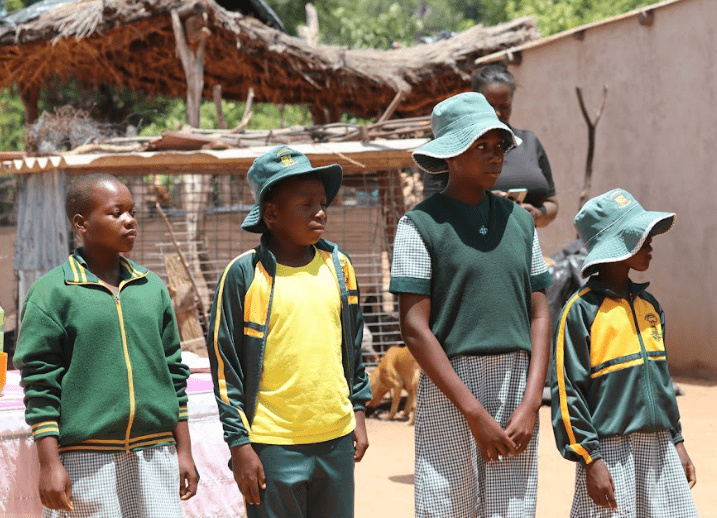Turning waste to gold – reimagining the value of flies
Communities in ZIRP target areas are vulnerable to climatic shocks. The approach of the project was therefore to integrate climate smart interventions that build resilience to future shocks. Under Food Security and Livelihoods interventions implemented by FAO, climate smart agriculture was fully mainstreamed. One stellar example is the production of Black Soldier Fly (BSF) to produce high-protein feed for chicken, rabbits and pigs. Farmers in Buhera District are turning organic food waste into a higher value product while contributing to agro-ecology and low cost farming initiatives.
BSF is a common and widespread sanitary fly, which unlike houseflies produces high crude protein, fats and other essential amino acids.
The farmers are using household kitchen waste vegetables, sadza and manure to attract wild BSF to produce maggots. BSF feeds on waste organic feed substrates, thus placing it on the top list of environmental engineering organisms. The maggots are then dried, grounded and mixed with soya meal/sorghum/maize and salt. This organic feed augments the chicken feed and organic grass fertilizer (an alternative to chemical fertilizers), currently in use for increased crop productivity. They are also exploring selling the BSF as an additional value-added product. During the year 2022, FAO in partnership with Chinhoyi University of Technology trained 22 lead farmers on setting up colonies, larva management, feed formulation and BSF feeding including infrastructure development.
The lead farmers are responsible for cascading training to other communal cluster farmers for better farming methods, including how to produce feed for their livestock. Extension officers from Ward 28 and 29 were also trained on BSF production for backstopping the famers in their respective areas. Lead farmers have taken on their responsibility to train other farmers on BSF production with relish.

